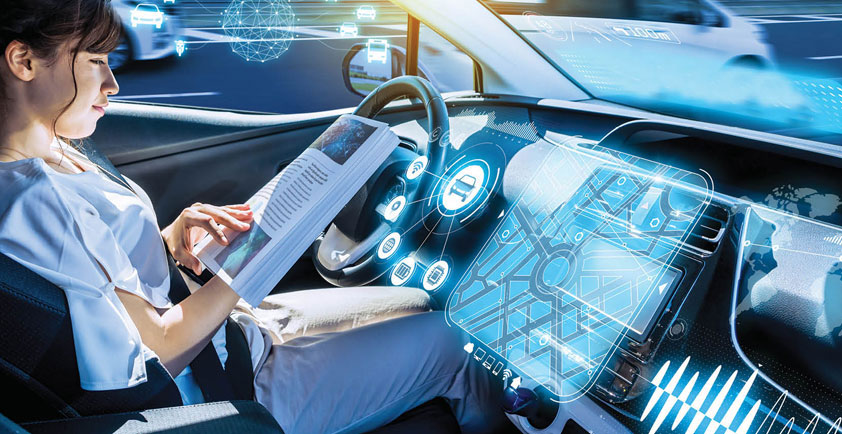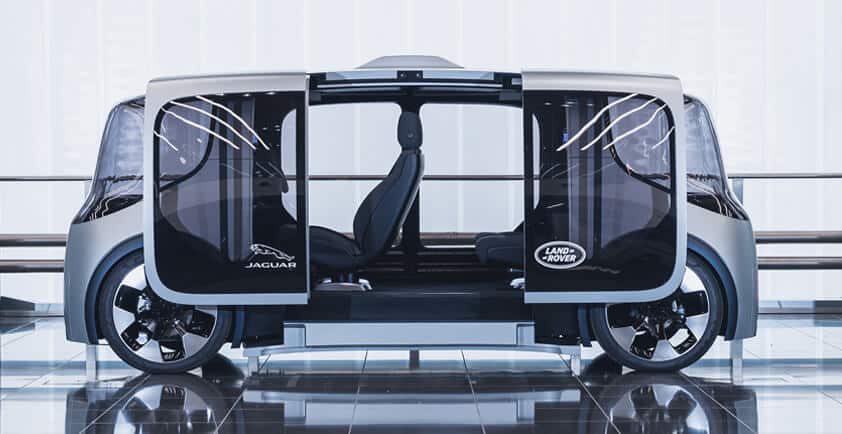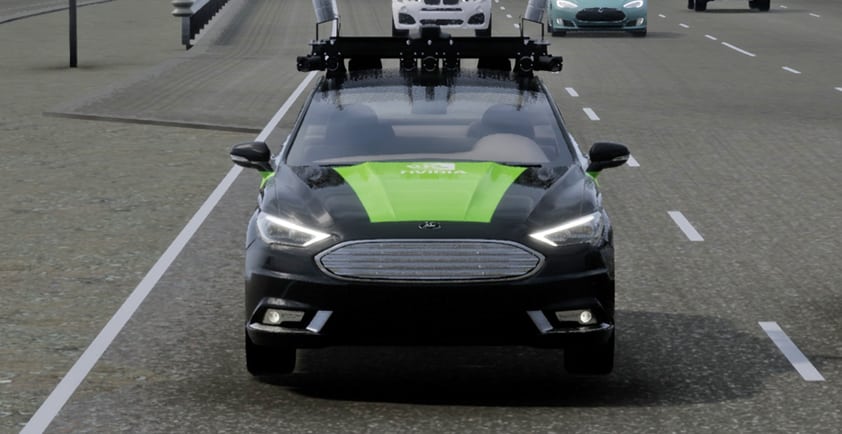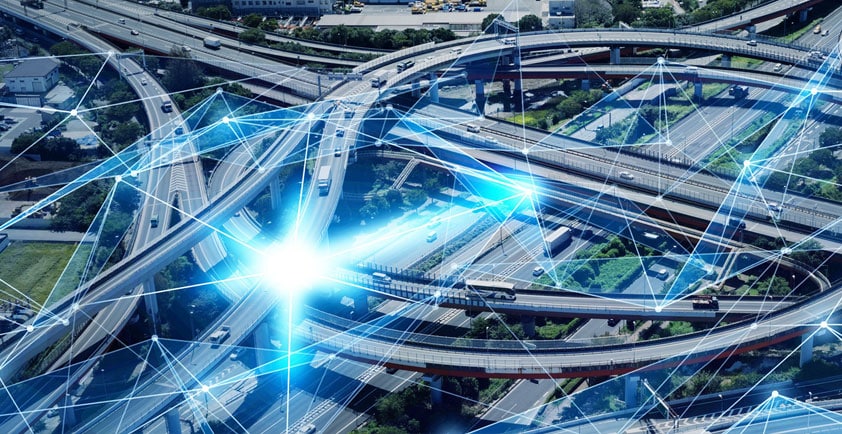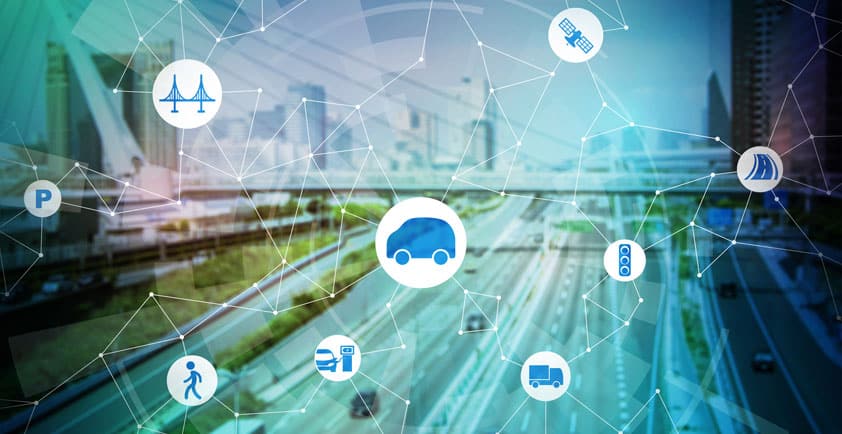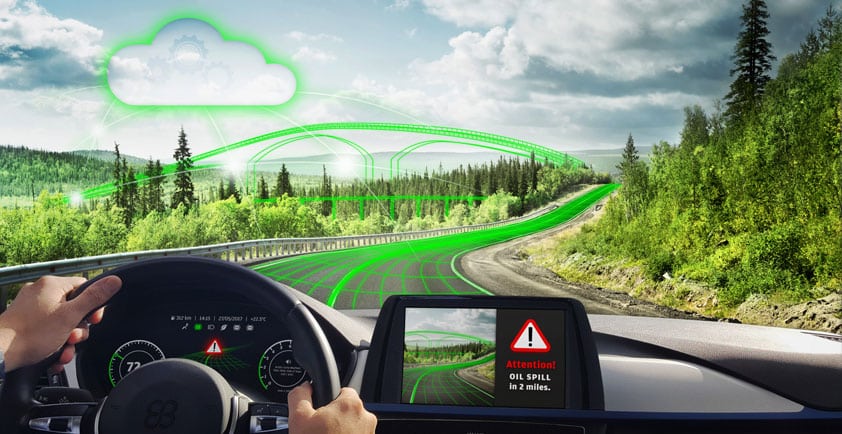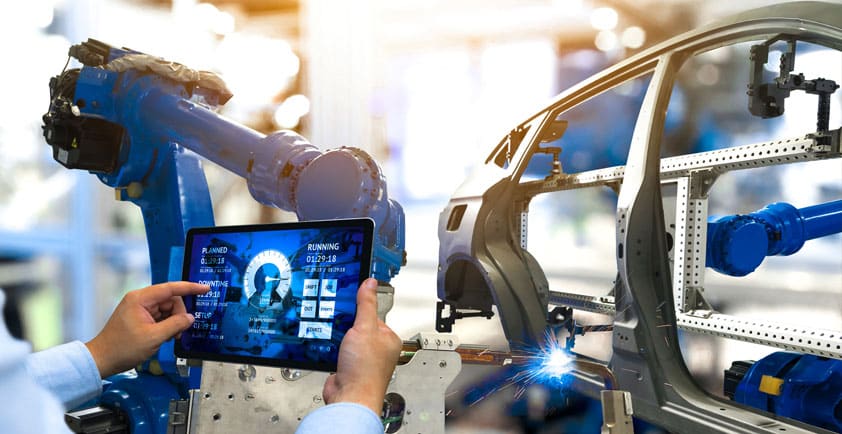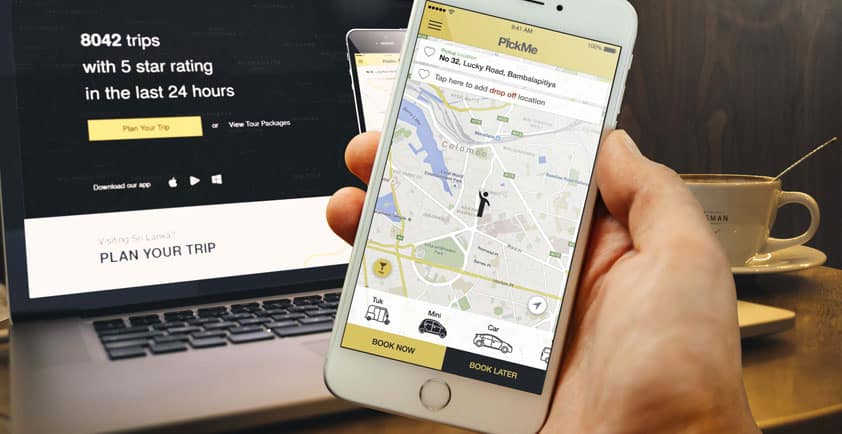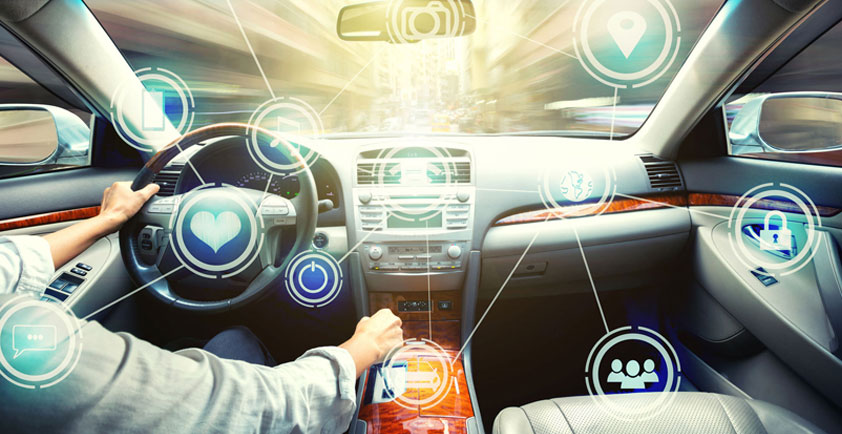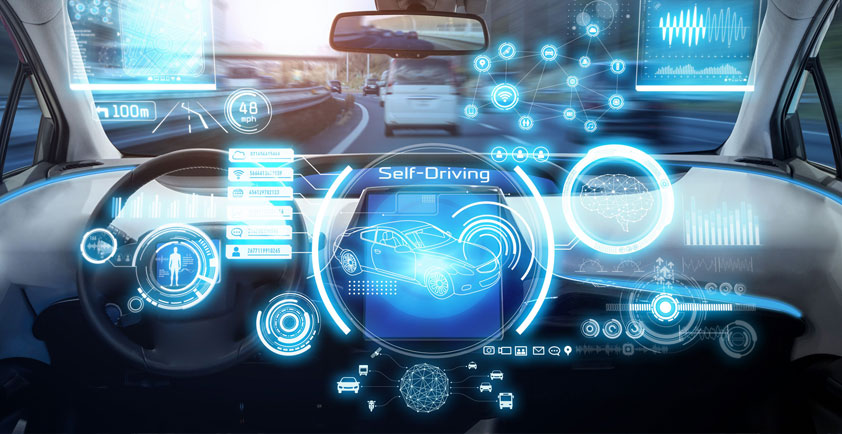

CONNECTED CAR REIGNS AT THE DETROIT AUTO SHOW
Is the World Ready for Smart Transportation?
Connected cars have captured the imagination of consumers, car manufacturers and suppliers worldwide. And no place showcases the innovations in connected vehicles and smart transportation like the North American International Auto Show (NAIAS), which is being held in Detroit this week. The NAIAS Automobili-D Symposium focuses on the following trends where mobile connectivity is table stakes in this fast moving market: connected car, autonomous driving, emobility and mobility services, and smart cities.
Car manufacturers and their partners around the globe are betting on vehicle connectivity to drive much of the new car sales revenue. Allied Market Research predicts the global connected car market will grow 17.1% from 2018 to 2025, reaching $225,158.0 million by 2025. Pressured by consumers who see their vehicles as an extension of their smart phones keeping them connected to the outside world, vehicle manufacturers need to expand their relationships with supply chain partners in the following areas:
> Vehicle communications, internet, cloud and Internet of Things (IoT) services
> Content and digital media (CDM) and infotainment systems
> Connected diagnostics, maintenance and tracking systems via telematics
> Driver assistance, navigation and safety capabilities
> Autonomous driving, artificial intelligence (AI) and machine learning (ML) systems
> Security systems to prevent the threat of vehicle system and data hacking
You can get a sense of the scope of this growing connected car landscape below:
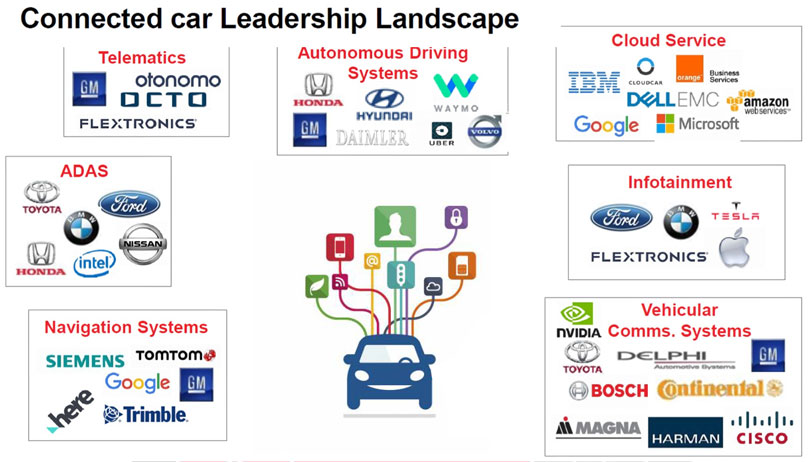
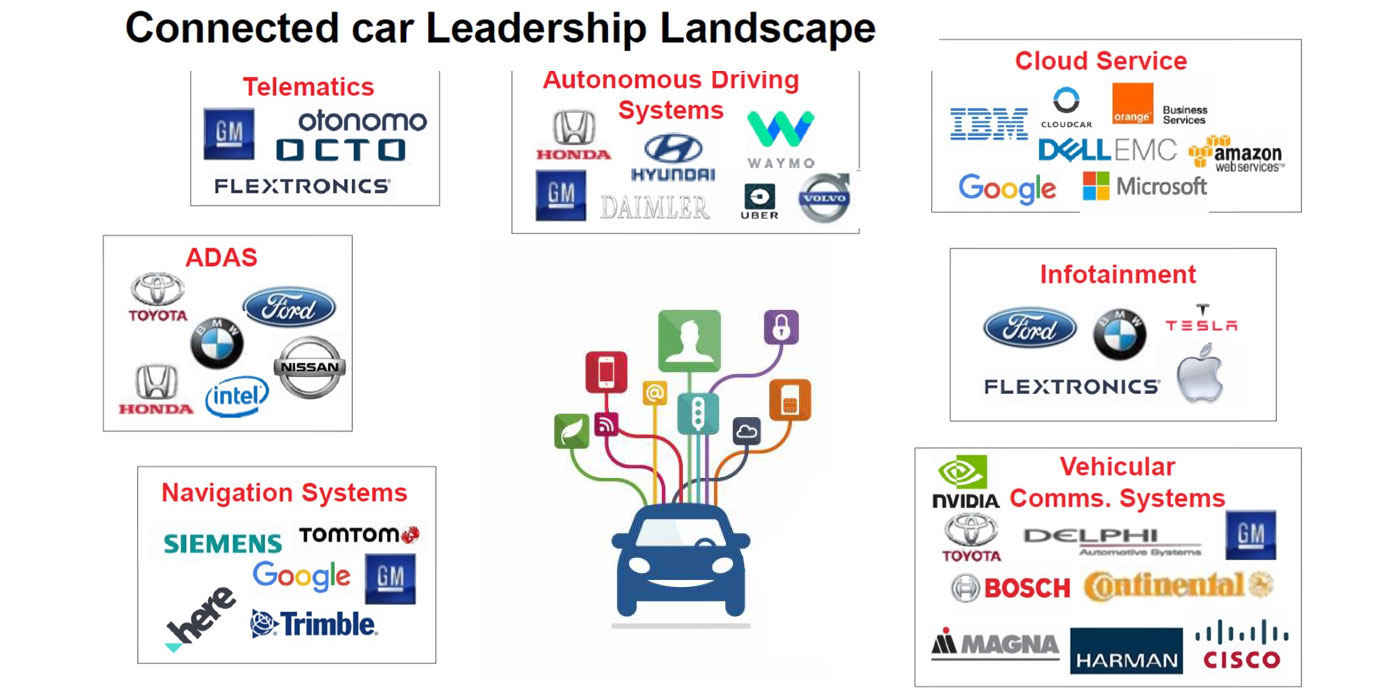
A more intelligent transportation system
When you think of the value a more intelligent transportation system adds to our lives and society, it is easy to understand the rapid growth of this hyper-mobile market. Imagine how many vehicular accidents and injuries could be avoided if cars about to collide communicated with each other and initiated measures to gently prevent a catastrophe?
Some byproducts of this inter-vehicle communication could be the reduction in car insurance and medical premiums as part of many providers’ "good driver" incentives. And vehicles capable of not only mapping out less congested routes to reduce fuel consumption but also issuing preemptive alerts to lower maintenance costs would be welcomed by consumer and commercial fleet owners. Public safety at all levels of government can reap the benefit of preemptively alerting drivers officials, and emergency personnel of traffic jams, parking space availability and accidents with the help of strategically placed sensor and cameras connected to IoT systems.
Connected Car and Smart Transportation Challenges
The increasing dependency on broader supply chain services and partners (illustrated in the diagram below) demands direct and secure, private interconnection between multiple players that existing legacy IT infrastructures cannot support.
Fast and safe access to business and digital ecosystems and customers in competitive markets is needed for automotive manufacturers to make these vital interactions successful. Greater interconnection within this ecosystem could also translate into new connected vehicle opportunities in more rural regions that have limited physical infrastructure. That would enable industrial equipment and commercial trucks traveling beyond the furthest edges of a metropolitan area to remain connected to critical information services, as well as provide valuable customer and vehicle data back to manufacturers.
Data continues to grow exponentially while data compliance and privacy challenges remain. This heightens the focus on more effective growth management and governance strategies for system and data capture, processing, analysis and security. More focus will also be needed on integrating AI and ML capabilities to deliver better driving experiences to consumers and achieve greater efficiency in bringing connected solutions to market. And when considering the application and services layers of connected car and smart transportation systems, reducing the time, cost and risks behind traversing networks between a manufacturer’s enterprise and its digital service chain will be critical to the success of this emerging ecosystem.
Connected car and smart transportation opportunities
Just as the connected vehicle/smart transportation industry is not standing still, neither are the infrastructure or communications innovations required to support this thriving market. Requirements within this expanding industry ecosystem include greater scalability to handle increasing data volumes from multiple device types, lowering the latency in the supply chain and between vehicle/consumer interactions, and enabling denser connectivity, especially in the most remote edges of the world.
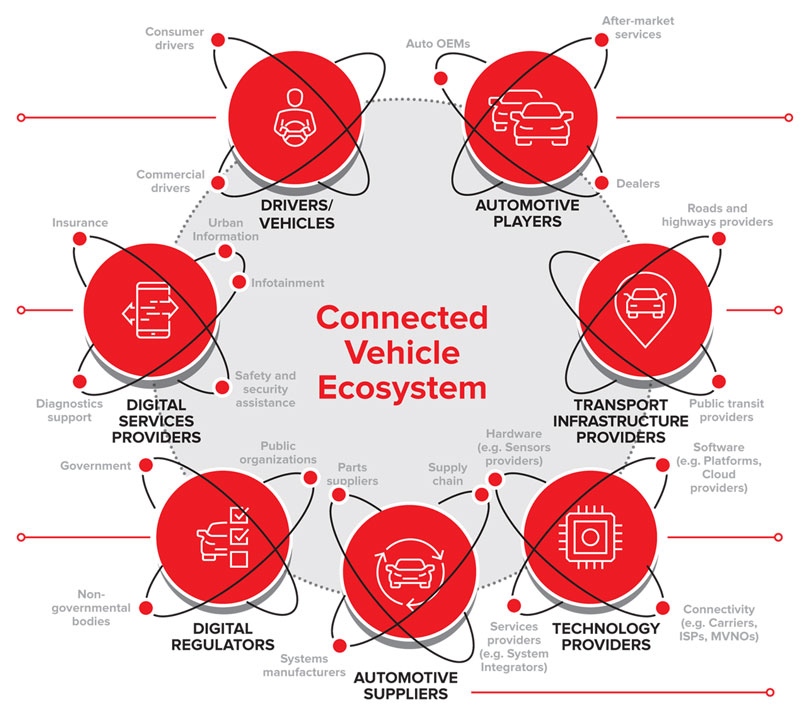
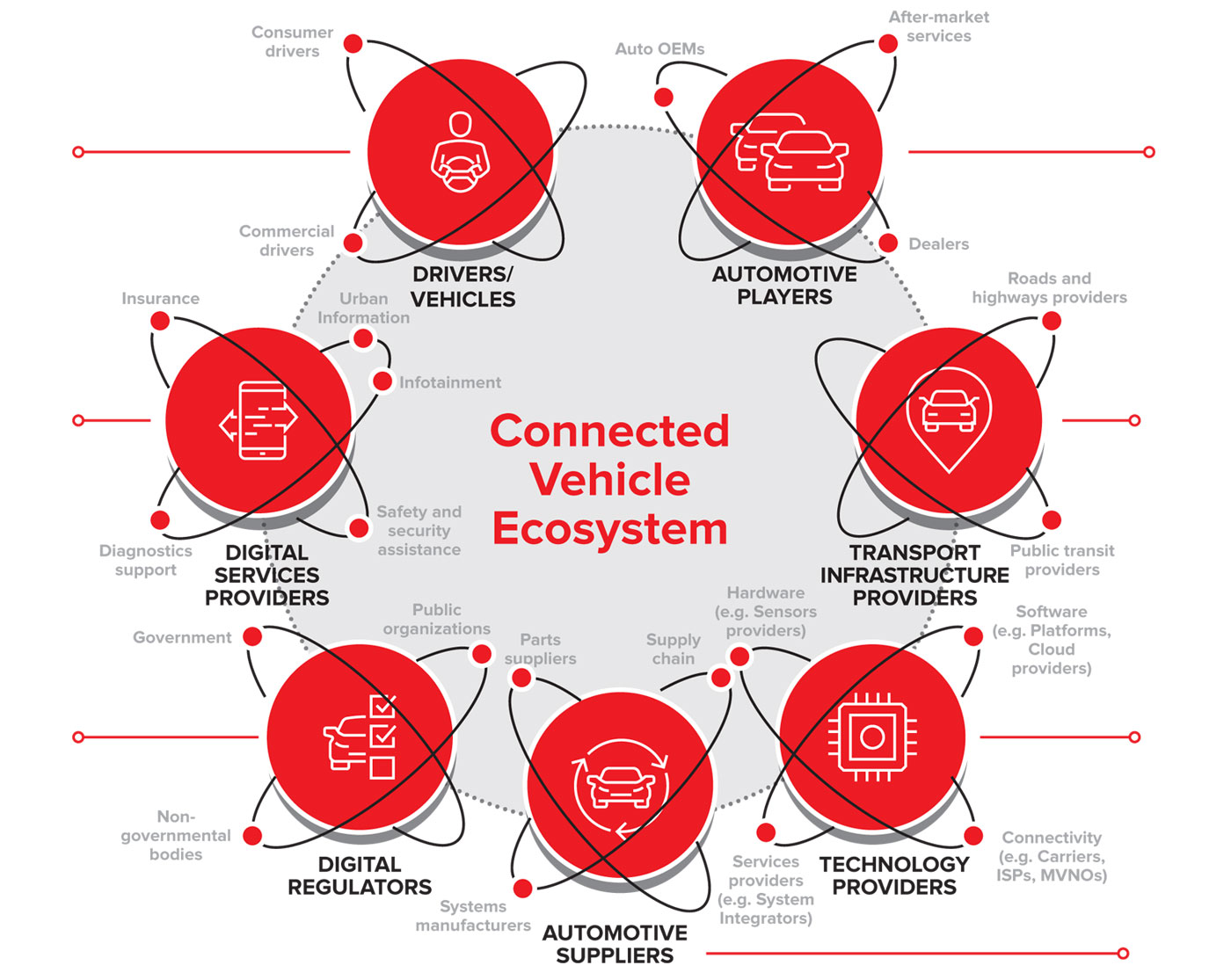
The following established and emerging communication delivery and IT technologies will contribute to this complex landscape:
> Network Function Virtualization (NFV)
> Lower Power Wide Area Networks (LPWAN)
> 5G Microcells and Network Infrastructure
> Wireless Long-Term Evolution (LTE)
> Satellite Communications
> Network Slicing
> Telecommunication Carrier Aggregation
> Edge Computing
Through the lens of enabling digital infrastructures at Equinix, we believe that connected car and smart transportation networking will undergo significant change, particularly in high-speed wireless spectrum and radio access, similar to what we’ve seen with optical paths and submarine cable system routes. As this evolves, the performance and economic benefits of placing workloads proximate to users and their respective value service chain to reduce latency with be critical to the industry’s success.
Many of our automotive customers are finding that solving these challenges can be made possible by deploying Interconnection Orientated Architecture™ (IOA™) best practices on Platform Equinix®, along with supply chain partners as laid out in the Automotive Digital Edge Playbook. As shown in the diagram below, an IOA strategy underpins digital engagement and digital ecosystems to support of consumer omnichannel experiences, a more collaborative supply chain, and greater innovation and mobility as a service. That translates into enable faster customer-based insights and data monetization.
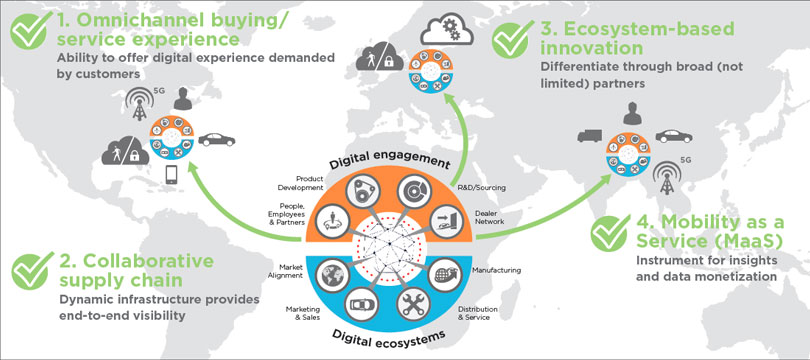
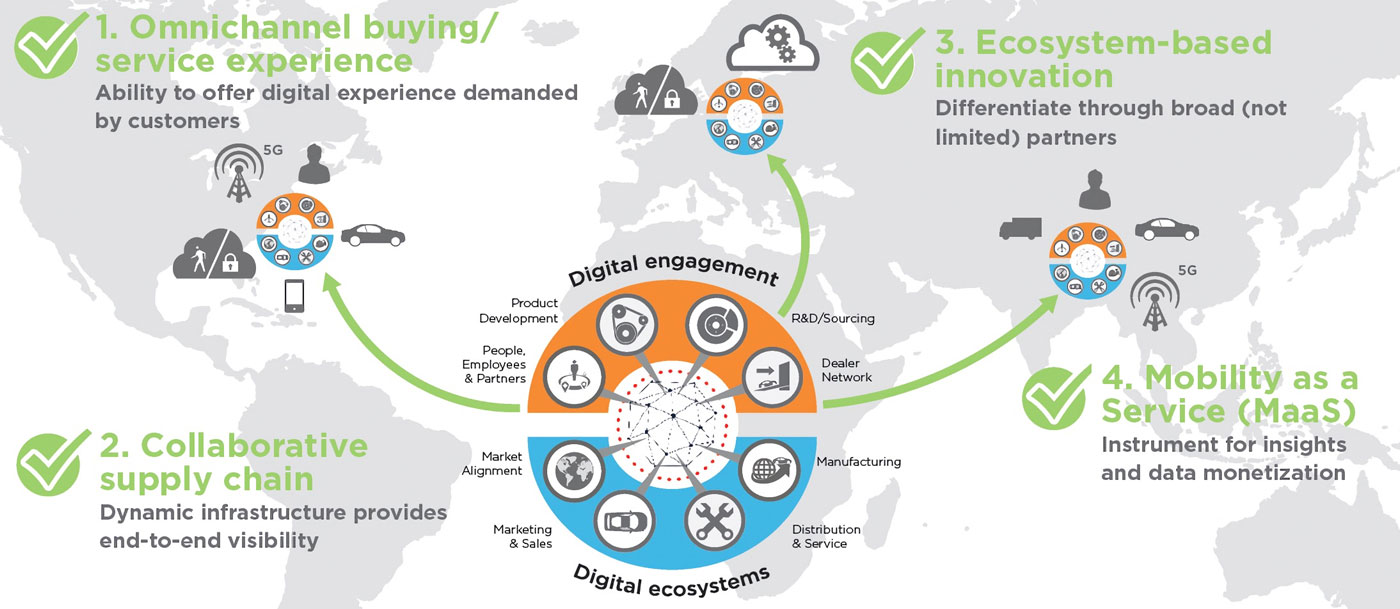
This more interconnected infrastructure also enables iterative assessments of the relationship between user traffic and new product development via a data- and user-centric edge deployment strategy. By optimizing and accelerating access to customer speeds and feeds, manufacturers and their suppliers can improve the performance of their delivery service chain to users, as well as lower the cost of bringing new products to market in a fast changing global economy.
The automotive ecosystem in action
One of our customers is a global automotive supplier that leverages an IOA approach on Platform Equinix to help protect millions of drivers around the world against accidents, paving the way for safe, efficient and intelligent mobility. While remaining strong in its traditional automotive products, the company was increasingly producing new digital services, such as a smartphone app to find parking spaces, autonomous driving systems and smart sensors in tires. To support these new digital-driven initiatives, the company needed to create a digital infrastructure that was agile and flexible enough to leverage the value of multiple cloud services and applications, enabling them to access the services they needed, when they needed them, while avoiding investment in cumbersome and costly hardware.
The company established a footprint within four Equinix International Business Exchange™ (IBX®) data centers in Germany, the United States and Asia to create regional interconnection hubs. This gave it the global platform it needed to securely deploy, directly connect and effectively scale its infrastructure to bring everything its business needed within reach. The solution implemented Equinix Connect—multihome IP backbone connectivity—for extra reliability and outstanding network performance and Equinix Cloud Exchange Fabric™ (ECX Fabric™) for on-demand, global hybrid/multicloud interconnection via software-defined interconnection.
As a result, the company was able to eliminate many on-premises backup services by switching to cloud-based file and backup solutions. This delivered the requisite latency and business continuity, while reducing the company’s CAPEX and OPEX. In addition, the solution enabled the company to:
> Establish a global, connected and flexible infrastructure fabric to support its business strategy
> Extend its leadership position in digital services
> Strengthen its ability to compete with new competitors
> Optimize multicloud connectivity and boosts performance
> Enhance security and reliability to meet data and compliance laws
"We now have a presence globally. That is great for today, but also puts us in a strong position tomorrow. We don’t know which services we may need to connect in the future, however, the flexibility we have with Equinix is the real value-add, said the Director of Corporate Infrastructure. "With Equinix, becoming more agile will enable us to remain at the forefront of industry innovation."
From what we have experienced with the automotive and other industry ecosystems in our IBX data centers, every business case is unique to each company, and the level of value gained by reorganizing existing and new IT assets and strategies over time opens up new opportunities. Equinix Professional Services can provide an unbiased review – through guided workshops, analysis and stakeholder guidance – to help companies gain a much clearer understanding of the positive impact their digital transformation can have on their business and revenue growth.
In the meantime, read the Automotive Digital Edge Playbook to learn about best practices for transforming your automotive business to succeed in a more connected and smarter mobility marketplace.
Authors: Luke Harrison and Klaas Mertens - Principal Solutions Architects at Equinix.
